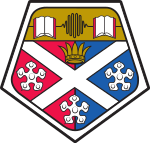
University of Strathclyde
About the Project
Scotland is incorporating economic, social and cultural rights into devolved law, including the rights to housing, food, health and cultural life. The justice framework in Scotland is not yet equipped to deliver effective remedies for a violation of these rights. JustRight Scotland has called for recognition of the right to an effective remedy. This PhD uses emancipatory arts-based methodologies to situate the voices of Gypsy Traveller communities in legal and policy reform. It asks what an effective remedy means in law and whether indigenous oral traditions provide new insights that counter dominant framings of justice in practice.
Project Details
The project seeks to address the following research questions:
- What traditional stories, songs and/or music resonate with GTC in the context of justice, rights and remedies? And what new insights does this provide, including challenging existing dominant framings of justice?
- What does the right to an effective remedy mean in law and in practice and how can delivery of effective remedies be improved?
The project adopts interdisciplinary legal and anthropological methods to address these questions. First, it examines what the right to an effective remedy means drawing on international and comparative law. Second, the PhD uses Arts Based Engagement Ethnography to co-produce new counter-framings of justice, rights and remedies from the perspective of GTC using oral traditions. The PhD student will adopt a critical ethnographic stance as an apprentice to the oral tradition – undertaking a long-term immersive experience through embodied understanding of the participants’ traditions and practices by learning them. Ethnographic fieldwork is further complemented with wider focus groups bringing together research participants, legal practitioners, civil society, civil service, and government stakeholders, as well as representatives of the justice system. The focus groups will be used to analyse and interpret the findings. Representatives of the justice system will learn new ways of understanding their profession through the voices of the research participants. Third, the project identifies critical discourse analysis as an appropriate method to analyse and critically theorise the PhD findings alongside ‘law and literature’ and ‘law and music’ as complementary analytical frameworks. The layered methodology will facilitate several outputs, in addition to the thesis, that includes legal briefings, a cultural discography/anthology, interdisciplinary briefings and a toolkit for accessing justice from the margins.
Primary Supervisor: Professor Katie Boyle (University of Strathclyde)
Additional Supervisor/s: Professor Jo Ferrie (University of Glasgow), Dr Saskia Vermeylen (University of Strathclyde) and Barbara Bolton (JustRight Scotland)
Eligibility
Applications for this studentship must have:
- honours degree (high 2:1 or 1:1) and a demonstrable interest in the topic area under investigation.
- masters degree (with Merit / Distinction) in Law or cognate discipline
Applications for this studentship may have:
- Experience relating to human rights, economic, social and cultural rights, law, anthropology, sociology, music, literature, devolution or the right to an effective remedy in an academic setting or in practice is welcome, although not a requirement.
- Applicants with lived and/or practice based experience of justice from the perspective of Gypsy Traveller communities is welcome, although not a requirement.
How to apply:
To be considered for this scholarship, eligible applicants must apply formally online via Pegasus for PhD in Law and be available to commence study on 1 October 2024.
Please go to the project webpage and thereafter the apply section
In the funding section of the application form please state the project title:
SGSAH CDA Project – Justice, Rights and Remedies: empowering Gypsy Traveller communities using oral traditions to influence the right to an effective remedy in Scotland
Please submit your application with the following documents uploaded no later than 21 May 2024 by 17:00 hrs BST:
· 500-to-1000-word personal statement outlining why you wish to undertake this studentship and what you will bring to the project
· CV (2 pages)
· 2 academic references – name and full contact details
· All degree certificates and transcripts, to date
· IELTS (taken within the past 2 years prior to commencing study) or equivalent proof of English language proficiency (if English is not your first language)
Informal enquiries may be directed to Prof Katie Boyle (University of Strathclyde)
Applications will be ranked by a selection panel after the closing date, 21 May 2024 and applicants will be notified if they have been shortlisted for interview.
Interviews will be held on Tuesday 28 May 2024.
To help us track our recruitment effort, please indicate in your email – cover/motivation letter where (globalvacancies.org) you saw this job posting.

